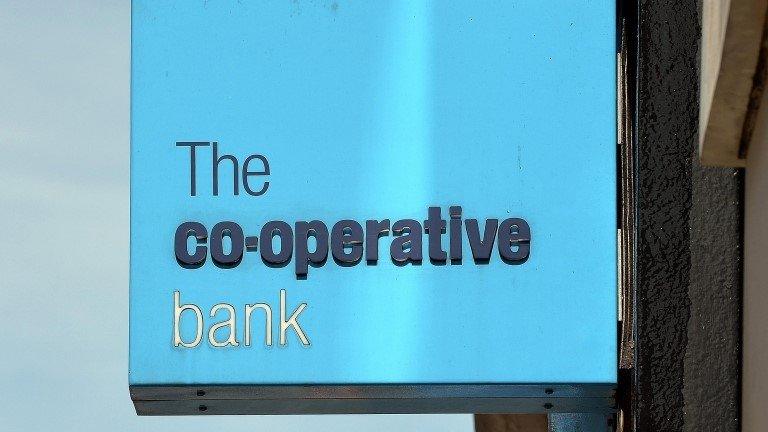Co-op Group announces sweeping reforms
- Published
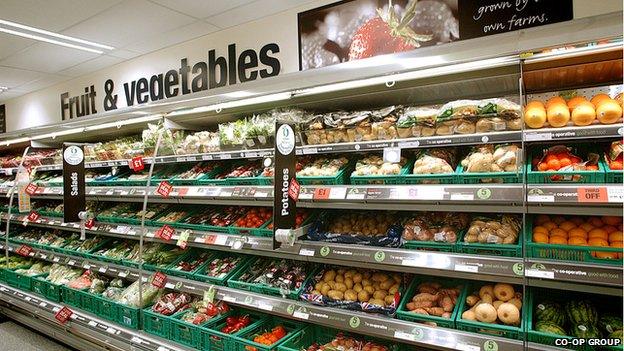
There is a Co-op food store in every UK postal area
The Co-op has unveiled radical reforms to the way it is managed following a series of financial problems at the group.
It will cut, external the number of board members from 18 to 11 and create a board of directors who have qualifications suited to running the business.
Members will be given one vote apiece.
The Co-op, the country's oldest and biggest mutual organisation, lost £2.5bn last year following a massive loss at the Co-operative Bank.
A review of the way the business was run was carried out earlier this year by Lord Myners, who called the group "manifestly dysfunctional" and recommended a major shake-up.
Euan Sutherland, who resigned as chief executive of the Co-op Group in March after 10 months in the job, said the organisation in its then form was "ungovernable".
Independent
Traditionally, directors were Co-op members, who did not necessarily have any relevant experience. They have included a retired teacher and a plasterer.
The organisation's eight million members did not have a direct vote, but elected officials to vote on their behalf.
The Co-op's members voted to introduce sweeping changes at a special meeting earlier this year.
The board will in future have a majority of independent directors - including an independent chairman and five independent non-executive directors. However, the board will have three positions for member-nominated directors, contrary to Lord Myners' recommendations.
The new rules will also protect against de-mutualisation.
Ursula Lidbetter, chair of the Co-operative Group, said: "These governance reforms represent the final crucial step in delivering the necessary change to restore the group and return it to health.
"This has been a process built on co-operation, focusing above all on creating a society where every member has a voice in shaping the group's future."
Sell-off
The Co-op Group began as a small shop in Lancashire and has woven its way into British communities. There is a Co-op food store in every UK postal district and its businesses range from food retailing to funeral parlours.
In 2013, the Co-operative Bank was found to have a £1.5bn gap in its finances and the Co-op Group then had to relinquish control of the bank as part of the subsequent rescue package.
The Co-op Group has also been selling off parts of the business in order to reduce debt.
This week it sold its farms business for £249m to health charity the Wellcome Trust, and last month it agreed to sell its 774-strong pharmacy chain for £620m to Bestway Group.
- Published4 August 2014
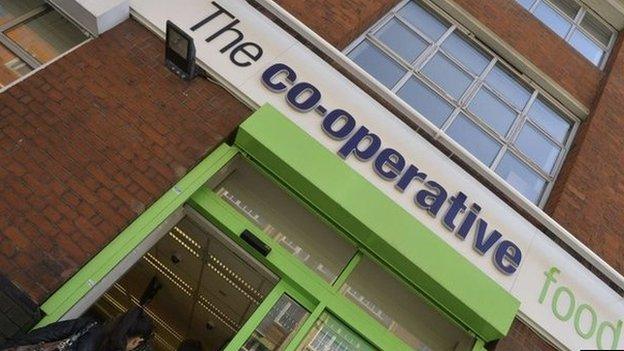
- Published18 July 2014
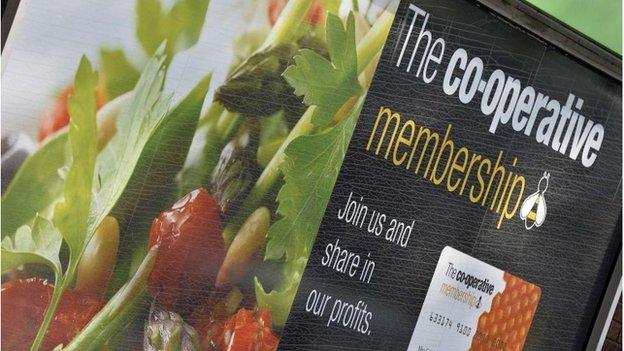
- Published17 April 2014

- Published17 May 2014
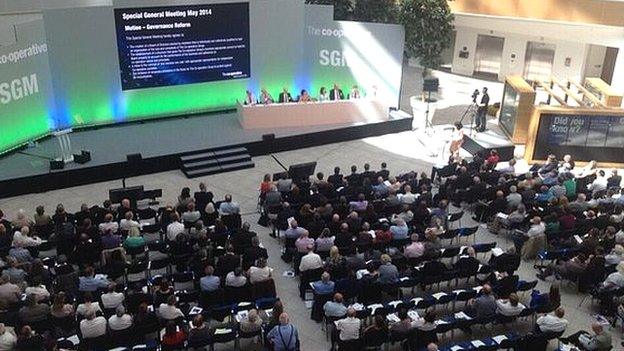
- Published22 April 2014
